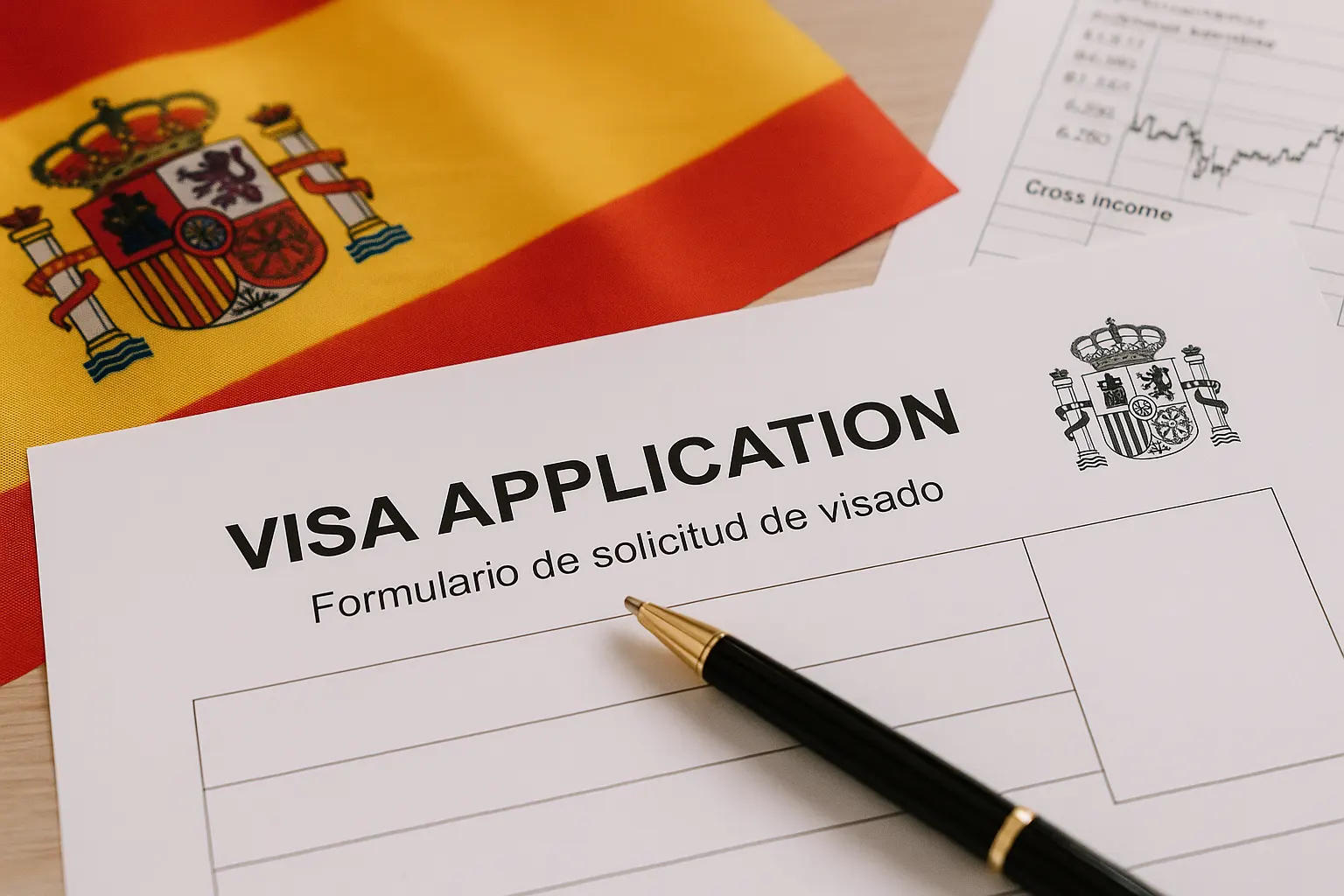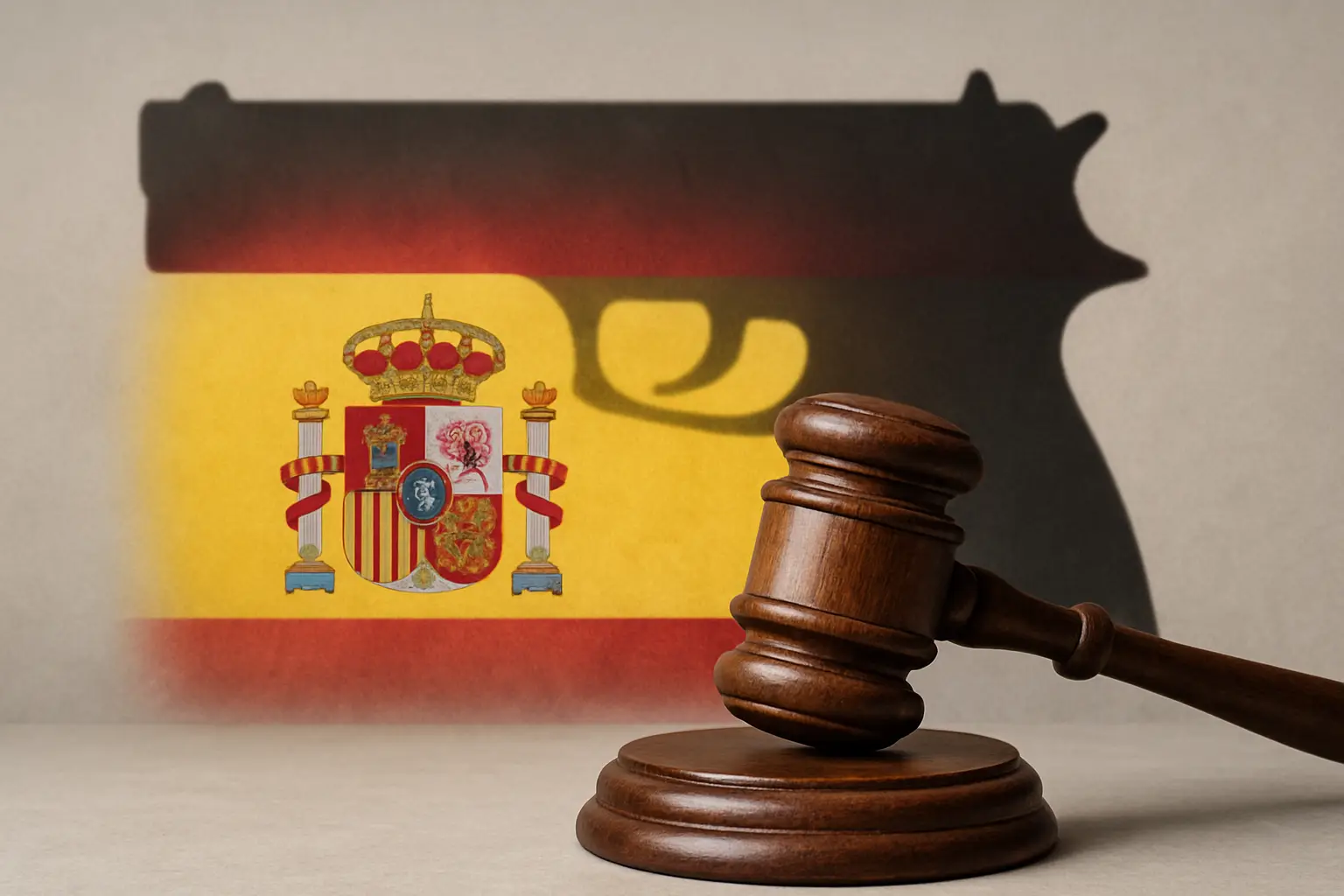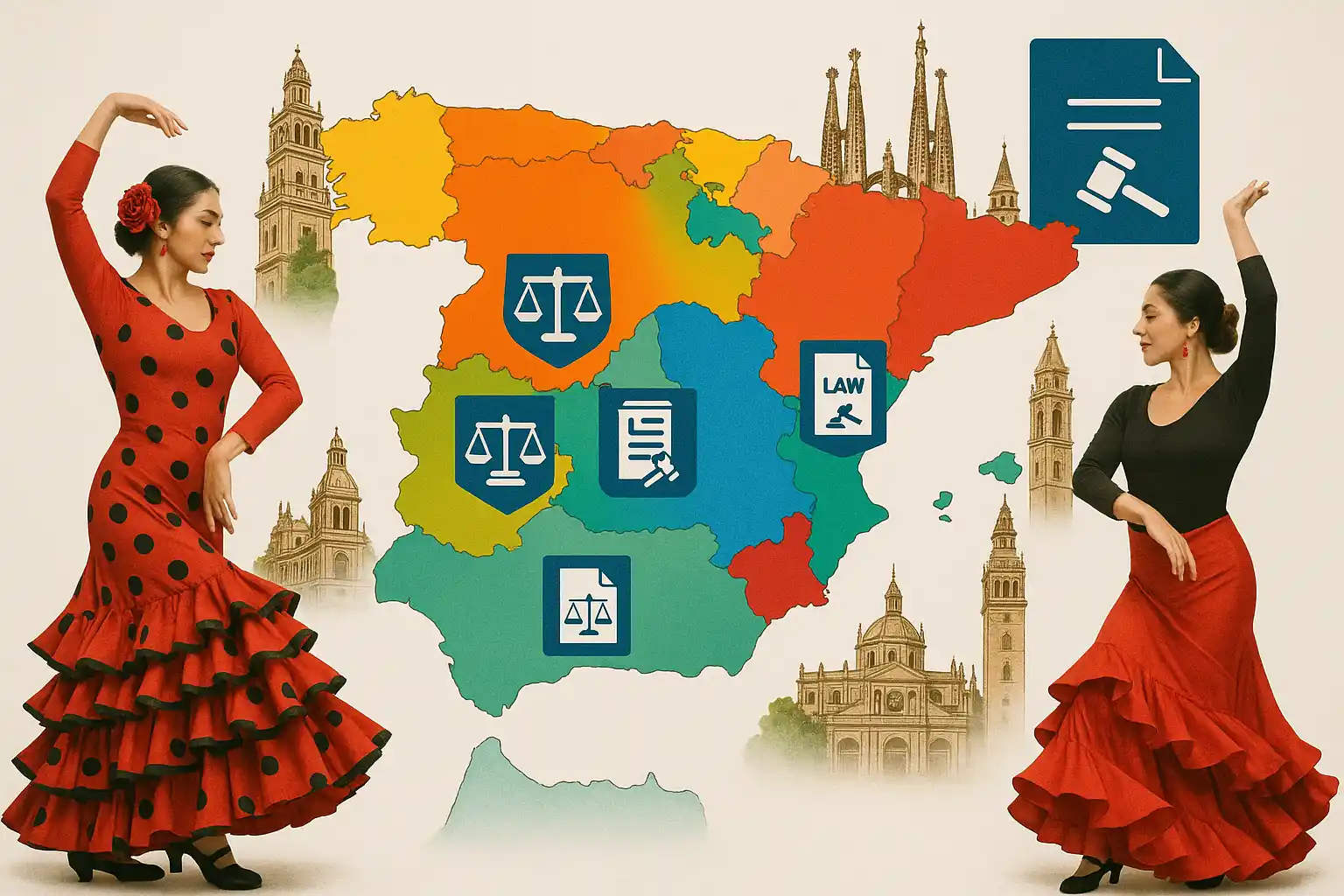Spain has become a popular destination for digital nomads, thanks to its vibrant culture, stunning landscapes, and thriving remote work community. To attract more remote workers, Spain has introduced a digital nomad visa that allows individuals to live and work in the country while continuing their professional careers.
In this article, we will explore the details of Spain’s digital nomad visa, including its benefits and requirements. We will also discuss the challenges applicants may face during the application process. Whether you’re a seasoned traveler or someone looking to experience life in Spain, this guide will provide you with valuable insights into this exciting opportunity.
Understanding Spain’s Digital Nomad Visa
What is a Digital Nomad Visa?
A digital nomad visa is a specialized type of visa that allows individuals to live in a foreign country while working remotely for companies outside the host nation. It caters to the growing trend of professionals who can perform their job duties from anywhere with an internet connection.
NIM Immigration Lawyers Spain: Services and Expertise
NIM Immigration Lawyers Spain is a distinguished firm known for its expertise in facilitating digital nomad visa applications for Spain. The team at NIM comprises seasoned professionals dedicated to assisting applicants through the intricate process of obtaining a digital nomad visa in Spain.
How Does the Digital Nomad Visa Work in Spain?
In the context of Spain, the digital nomad visa offers an opportunity for remote workers to reside in the country legally while continuing their work activities online. This visa enables individuals to enjoy the cultural richness and quality of life in Spain while maintaining their professional engagements with clients or employers abroad.
Digital Nomad Visa vs Non-Lucrative Visa in Spain
When considering a move to Spain, it’s essential to understand the differences between the Digital Nomad Visa and Non-Lucrative Visa. Each has its own set of benefits and restrictions, making it crucial for applicants to choose the one that best fits their specific needs.
Family Considerations with the Digital Nomad Visa
An added advantage of the digital nomad visa is its potential applicability for family members. This aspect is particularly beneficial for those looking to bring their families along during their stay in Spain. By understanding the nature of a digital nomad visa and recognizing the role of reputable firms like NIM Immigration Lawyers Spain, aspiring remote workers can navigate the intricacies of obtaining permission to work and reside in Spain seamlessly.
Eligibility Requirements for Spain’s Digital Nomad Visa
Applicants seeking the Spanish nomad visa must satisfy a series of stringent eligibility criteria designed to ensure compliance with immigration and labor regulations. Key requirements include:
- Passport Validity: A valid passport with a minimum remaining validity of six months beyond the intended stay in Spain is mandatory. This ensures legal travel and residency during the visa period.
- Remote Work Experience: Candidates must demonstrate that they work remotely for companies or clients outside of Spain. Proof of ongoing employment or contract agreements substantiating remote work is essential. This confirms the applicant’s status as a genuine digital nomad, not entering the local labor market.
- Income Requirement: Spanish authorities impose a minimum income threshold to guarantee financial self-sufficiency while residing in Spain. Applicants typically must show evidence of earning at least three times the IPREM (Public Indicator of Multiple Effect Income), approximately €2,700 per month, though this figure can vary. Bank statements, salary slips, or tax returns serve as verification. For more detailed information on these income requirements.
- University Degree or Equivalent Professional Experience: The visa application often requires proof of higher education credentials or substantial professional experience relevant to the remote work being performed. This criterion supports qualification assessment and legitimacy.
- Company Establishment Conditions: If applicants own or operate their own business, documentation proving company registration and operation outside Spain is necessary. The business should not generate revenue primarily within Spain, maintaining compliance with non-local economic activity rules.
Meeting these requirements demands careful preparation and thorough documentation. Each element plays a crucial role in establishing eligibility for the digital nomad visa and avoiding application rejection based on procedural grounds. Additionally, understanding the process for renewing your Spanish nomad visa can help ensure that you maintain your resident status while continuing your remote work in Spain.
The Application Process: Step-by-Step Guide
To apply for the Spanish digital nomad visa, you will need to follow a comprehensive process that involves both online and offline procedures. It is essential to understand the specific steps involved in the application process to ensure a smooth and successful outcome. Here is a detailed guide on how to apply for the digital nomad visa for Spain:
Online Application Process:
- Preparation: Gather all necessary documents, including a valid passport, proof of remote work experience, and evidence of meeting the minimum income threshold.
- Online Form Submission: Fill out the digital nomad visa application form on the official Spanish consulate website.
- Document Upload: Scan and upload all required documents as per the consulate’s guidelines.
- Payment: Pay the visa application fee online as specified by the consulate.
Offline Application Process (for individuals in Spain):
- Schedule an Appointment: Contact the nearest Spanish consulate or embassy to book an appointment for submitting your application.
- Document Submission: Bring all required documents in person to your scheduled appointment.
- Interview: Be prepared for an interview with consulate officials regarding your visa application.
Specific Instructions for Visa-Free Entry Countries
Individuals from visa-free entry countries who are already in Spain can follow similar steps as outlined above. It is crucial to ensure compliance with Spanish immigration laws and regulations throughout the application process.
By carefully following these step-by-step instructions, applicants can navigate the digital nomad visa application process effectively, increasing their chances of obtaining this coveted visa to live and work in Spain hassle-free. For those looking to embrace this lifestyle fully, becoming a digital nomad may involve more than just obtaining a visa; it could require a shift in mindset and financial planning as well.
Navigating Challenges During the Application Process
Obtaining the Spanish digital nomad visa involves strict requirements and a demanding process that often present significant hurdles for applicants. Understanding these challenges is crucial for preparing a successful application.
Common Challenges
- Gathering Necessary Supporting Documents: The visa requires extensive documentation, including proof of remote work engagement, income statements meeting set thresholds, valid passport copies, health insurance coverage, and a clean criminal record certificate. Each document must comply with specific standards and often needs official translations or apostilles, which can delay the process.
- Securing an Appointment at the Consulate: Consulates frequently have limited availability for visa appointments, especially in major cities or during peak travel seasons. Delays in booking an appointment may affect timely submission and processing.
- Understanding Eligibility Nuances: Interpreting the criteria—such as what qualifies as remote work or acceptable income sources—can be complex. Misunderstandings lead to incomplete applications or rejections.
- Navigating Bureaucratic Procedures: The process includes online forms, in-person submissions (where required), and follow-up communications. Language barriers and unfamiliarity with local administrative practices add to the difficulty.
Tips to Overcome Challenges
- Prepare Documentation Early: Start collecting all necessary documents well in advance. Verify their compliance with Spanish requirements, including translations and certifications.
- Use Professional Assistance: Specialized firms like NIM Immigration Lawyers Spain provide expert guidance to streamline document preparation, clarify eligibility criteria, and assist with consulate interactions.
- Monitor Appointment Availability Regularly: Check consulate websites frequently and consider multiple regional offices if possible to secure earlier slots.
- Maintain Clear Records: Keep organized copies of every submission and correspondence. This practice helps address any queries swiftly if additional information is requested.
- Leverage Online Platforms: Utilize digital communication tools offered by modern immigration law firms to receive timely updates and personalized advice without needing in-person visits.
Adhering strictly to these strategies mitigates common obstacles linked to Spain’s digital nomad visa’s demanding process. Applicants who anticipate these difficulties position themselves better for a favorable outcome.
Tax Considerations for Digital Nomads in Spain
Understanding Beckham’s Law
Beckham’s Law, officially known as the “Beckham Law” or the “Impatriates Regime,” is a special tax regime in Spain that offers favorable tax treatment to certain foreign individuals who relocate to Spain for work, including digital nomads holding the Spanish visa. This law allows eligible expatriates to benefit from a flat income tax rate of 24% for their first six years in Spain, regardless of their actual income level.
Pros and Cons of Opting for Beckham’s Law
Pros
- Tax Benefits: One of the main advantages of opting for Beckham’s Law is the reduced tax rate compared to the standard progressive income tax rates in Spain, which can exceed 45%.
- Certainty: Foreign individuals under this regime have clarity on their tax obligations and can plan their finances more effectively.
- Financial Incentive: The lower tax burden can provide a significant financial incentive for digital nomads considering relocating to Spain.
Cons
- Limited Duration: The favorable tax treatment provided by Beckham’s Law is limited to the first six years of residency in Spain. After this period, individuals will be subject to standard Spanish tax rates.
- Restrictions: To qualify for this regime, applicants must meet specific criteria, such as not having been a Spanish tax resident in the ten years prior to relocation.
- Potential Changes: There is always a risk of legislative changes that could impact the benefits offered by Beckham’s Law in the future.
By understanding the implications of Beckham’s Law and weighing its pros and cons, digital nomads can make informed decisions regarding their tax obligations while living and working in Spain.
Conclusion
Obtaining Spain’s digital nomad visa can be challenging for many remote workers. Applicants face various hurdles such as meeting strict eligibility criteria and navigating the complexities of the application process. However, the opportunity to live and work in Spain as a digital nomad offers a unique experience that may make these difficulties worth it. The vibrant culture, beautiful landscapes, and rich history of Spain provide an appealing setting for remote work. Although the visa application process may be tough, the chance to fully experience the Spanish lifestyle and discover everything the country has to offer can be highly rewarding for those who push through the challenges.














